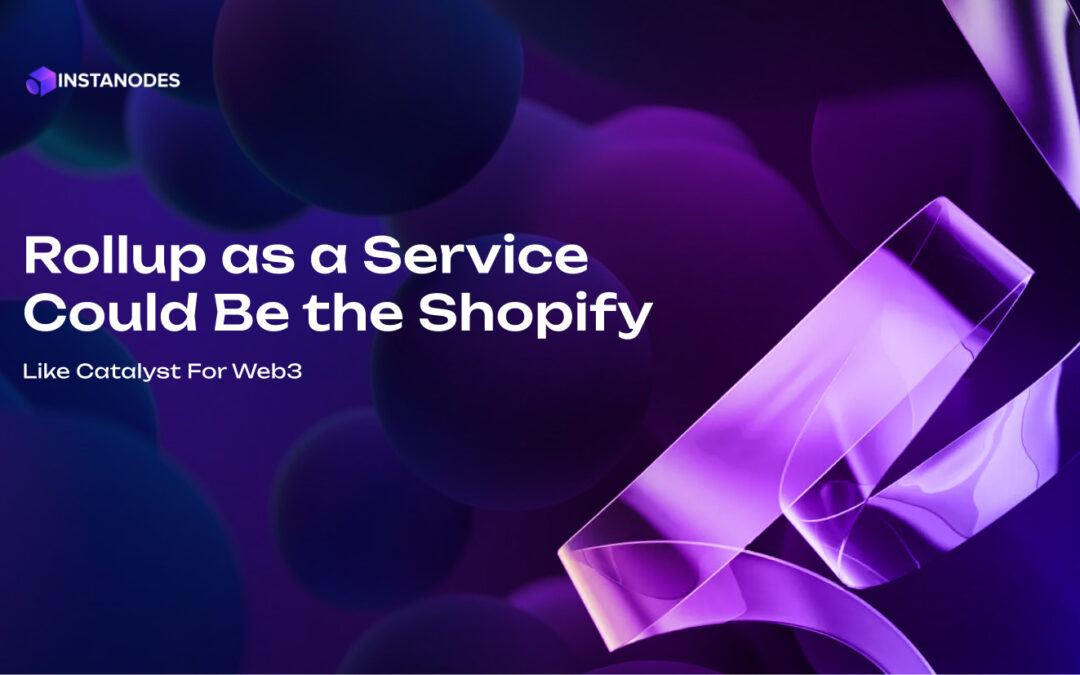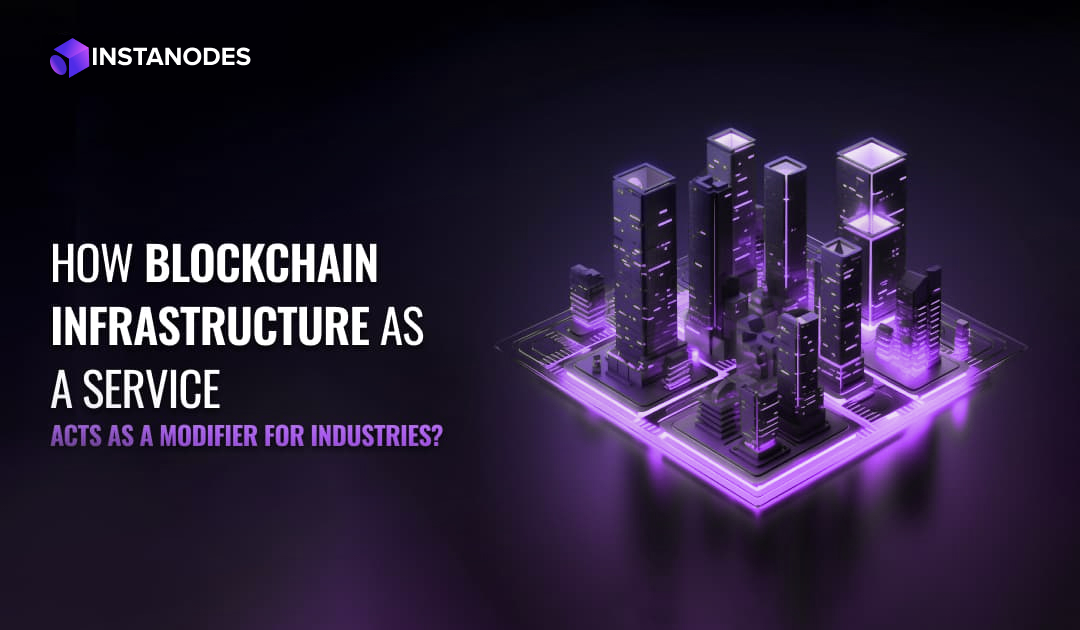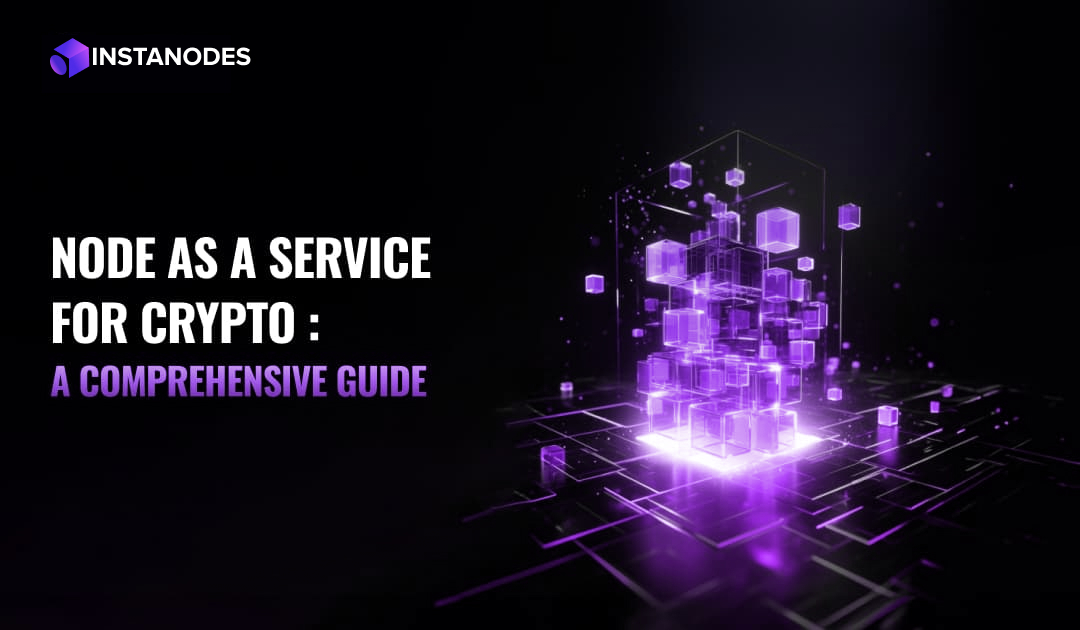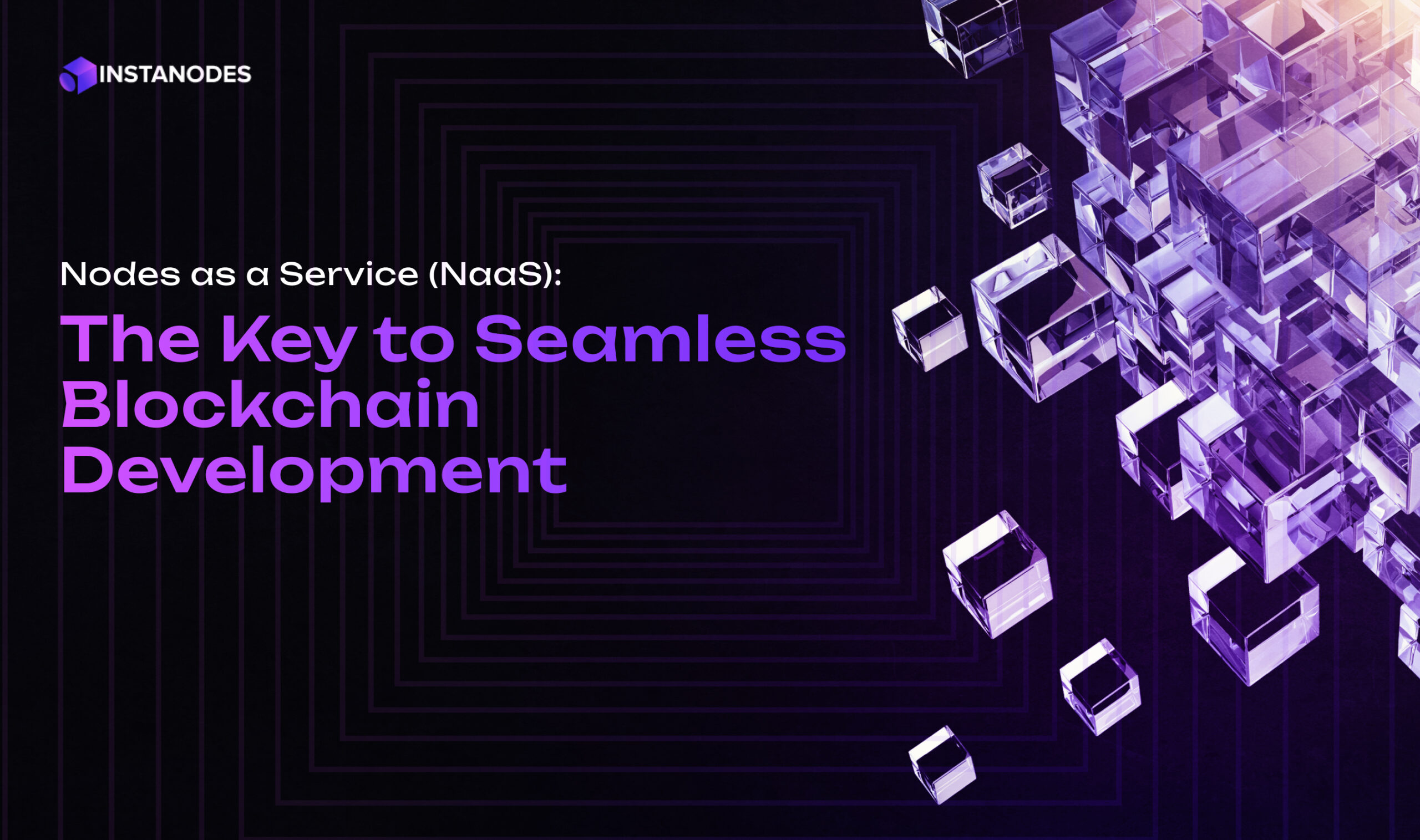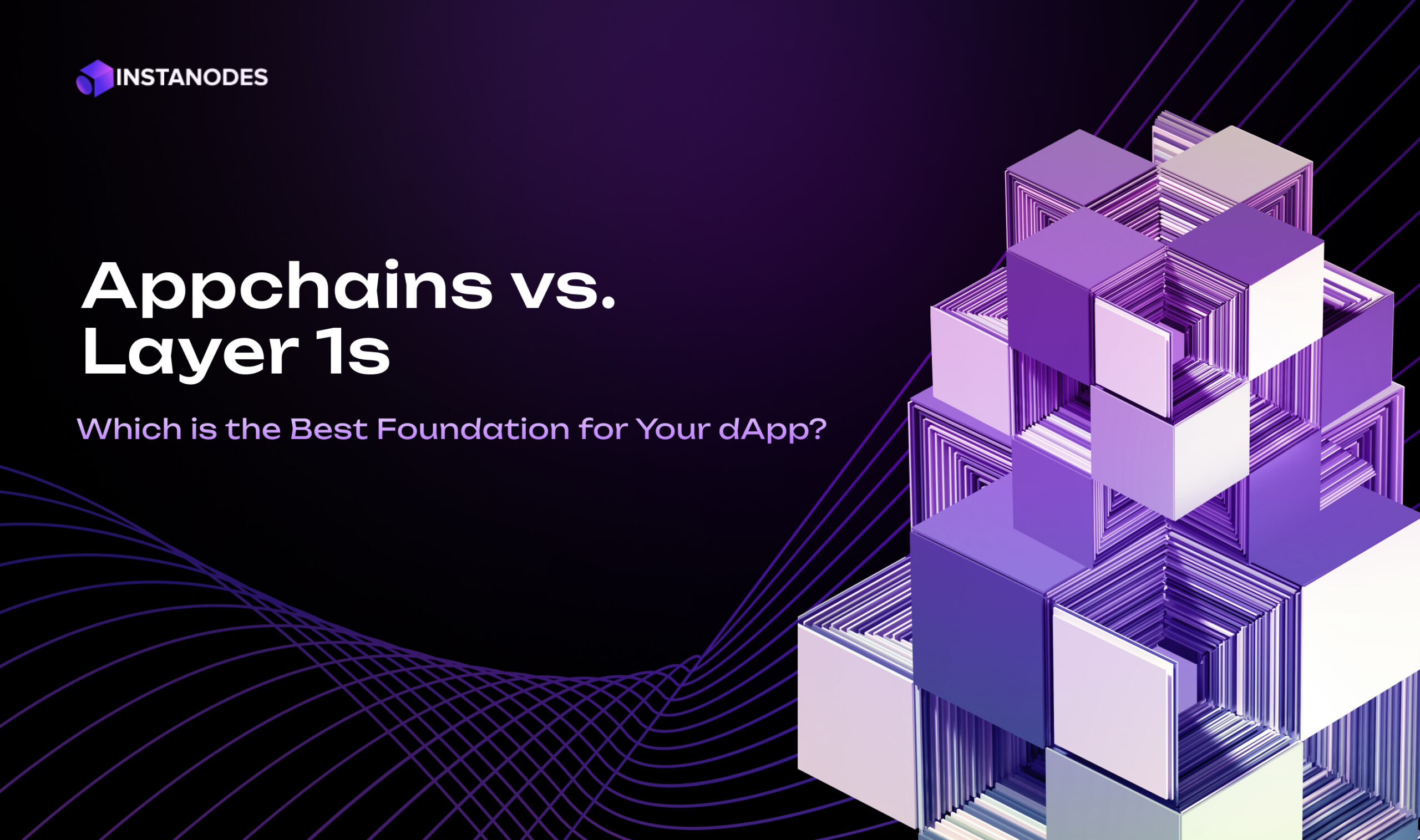In this digital world, we use advanced technologies to simplify complex processes, reduce the time of completion of certain projects, and enable the widespread adoption of innovative solutions. For example, the e-commerce sector underwent a transformation with Shopify. It changed the way businesses sell their products online by providing accessible, customizable tools that empowered entrepreneurs globally. Today, a similar transformation is underway in the Web3 ecosystem through Rollups as a Service (RaaS). It has set out to democratize access to blockchain scalability solutions, bringing rollup technology power to developers and businesses of every size. This change reflects how Shopify empowered millions of merchants to open online shops without extensive technical knowledge.
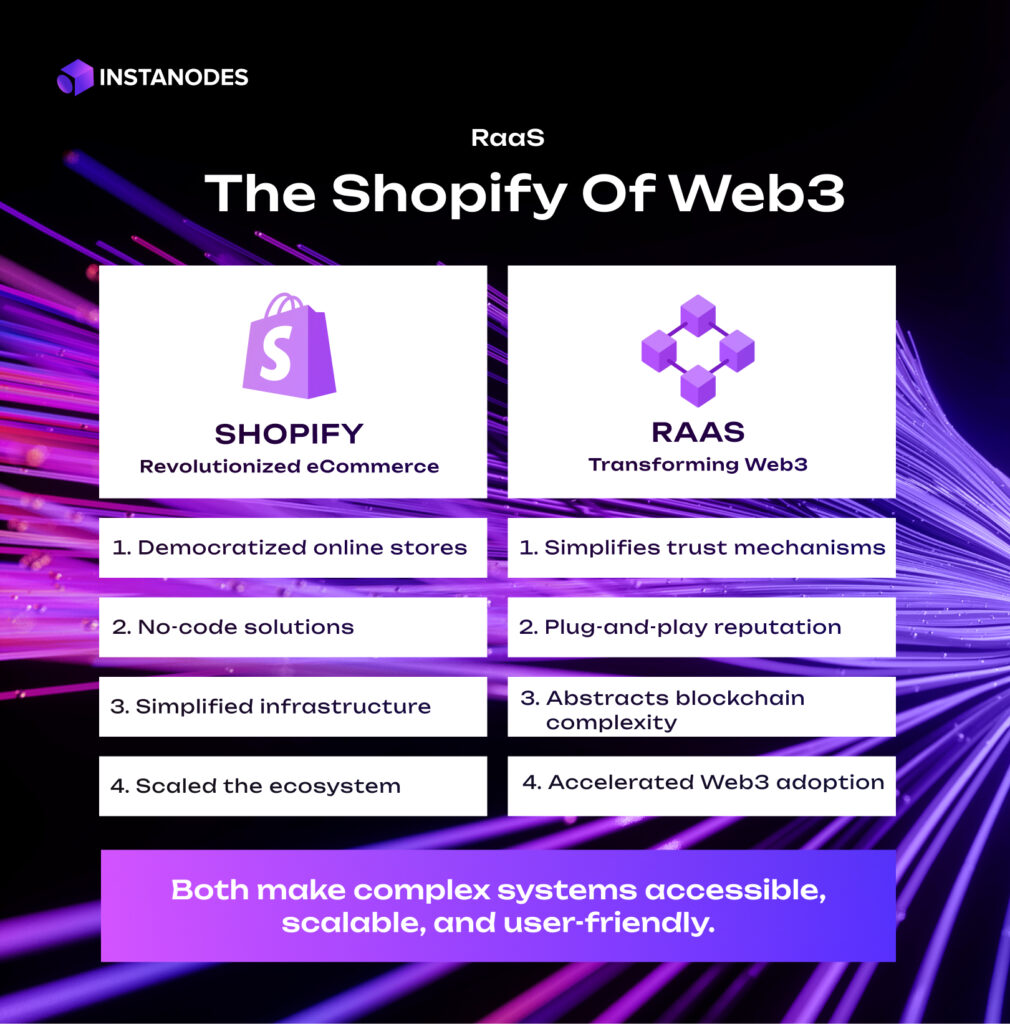
Let’s see how plug-and-play rollup crypto solutions are going to make the same revolutionary difference in the Web3 world.
Understanding Rollups as a Service (RaaS)
Rollups solve scalability issues of blockchain networks and are being widely used for Ethereum.
But how?
Fundamentally, rollups make transaction processing outside of the main blockchain (Layer 1), and then the compact transaction data or proof of validity is transferred to the main blockchain. It reduces the burden on the main chain and enables faster transaction processing, apart from ensuring scalability. It’s that simple!
Nowadays, rollup crypto solutions are used to optimize the performance of blockchain networks in general. This technique significantly boosts throughput while benefiting from the security assurances of the base blockchain.
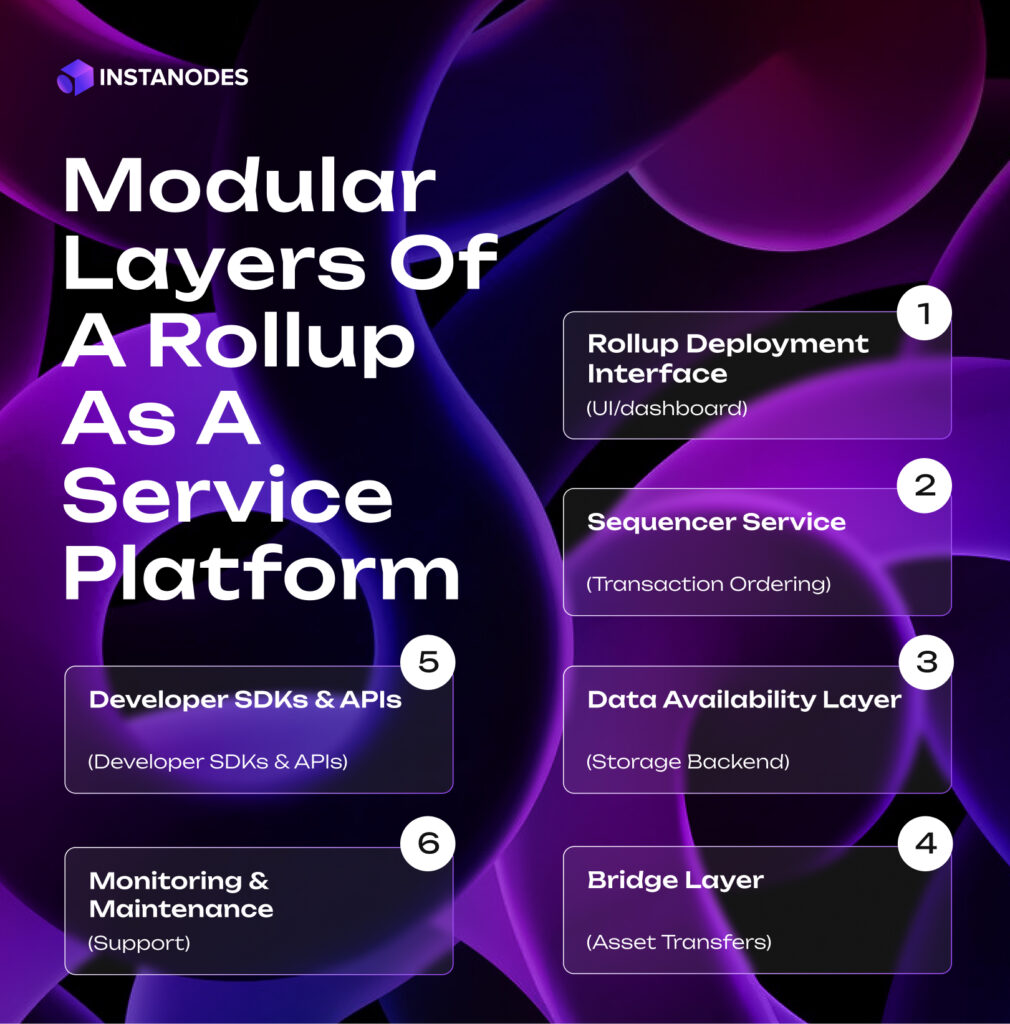
Practically, deploying and managing rollups has demanded much technical expertise, heavy infrastructure outlay, and ongoing maintenance effort. This technical difficulty has kept rollups confined to well-funded initiatives with expert development teams.
Therefore, using Rollups as a Service (RaaS) is an easier way of abstracting away the complexities of rollup deployment and management. RaaS vendors deliver pre-configured rollup solutions that can be implemented with little technical expertise, similar to how web builders commodified the development of websites. Such platforms take care of the infrastructure, security, and maintenance while enabling projects to concentrate on their respective value propositions.
The rollup crypto ecosystem has matured from largely custom implementations to more standardized, modular pieces that can be provided as services.
RaaS platforms typically provide:
- One-click or simplified rollup deployment
- Infrastructure management and monitoring
- Sequencer services for transaction ordering
- Data availability solutions
- Bridge implementations for asset transfers
- Developer tools and SDKs for building on rollups
This rollup service-based approach significantly reduces the entry cost of blockchain scalability, enabling high-performance decentralized apps to be opened up to a wider group of developers.
The Shopify Revolution: How It Transformed E-Commerce
In order to understand the possible effects of Rollups as a Service, it is enlightening to consider how Shopify revolutionized online shopping.
Launching an e-commerce site traditionally involved:
- Significant technical expertise in web development
- Custom coding of e-commerce functionality
- Managing hosting infrastructure
- Implementing security measures
- Developing payment integrations
- Ongoing maintenance and updates
These obstacles serve as significant barriers to entry and restrict independent e-commerce to technically competent entrepreneurs or companies with adequate resources to employ specialized development teams.
Shopify changed this landscape by providing a complete platform that hid these complexities. Anyone could create a professional online store overnight, without having to write a single line of code. The platform handled hosting, security, and payment processing and provided a marketplace of plugins for additional functionality.
Shopify’s influence on e-commerce is a case study in how technology can level the playing field for an industry. Prior to Shopify, creating an online store took technical expertise, lots of capital, and complicated integrations. Shopify stirred up the process by providing an all-in-one platform with editable templates, built-in payment gateways, inventory management, and marketing tools through an easy-to-use interface.
The impact was transformative. E-commerce was made accessible to millions of merchants who previously couldn’t join the digital economy. This democratization caused an explosion of niche shops, creative business models, and unprecedented diversity in e-commerce. Iconic brands such as Allbirds, Gymshark, and Kylie Cosmetics benefit partially from Shopify’s scalable and accessible infrastructure.
Above all, Shopify didn’t merely make e-commerce easy, it established a whole new ecosystem of developers, designers, and service providers that thrived on top of it. The multi-layered economy scaled the platform’s effects far beyond what its founders probably imagined.
Parallels Between Shopify and RaaS: Democratizing Technology for All
The parallels between Shopify’s influence on e-commerce and RaaS’s potential influence on Web3 are compelling. Shopify democratized online retail, and Rollups as a Service platforms are democratizing access to blockchain scalability solutions. The following explains the ways in which the parallels occur:
1. From Technical Complexity to User-Friendly Solutions
Just as Shopify transformed the complex task of building an e-commerce site into a user-friendly experience, RaaS platforms are simplifying rollup deployment. No longer will projects need deep expertise in zero-knowledge proofs, data availability solutions, or optimistic fraud proofs to leverage rollup technology.
Think about how traders with limited technical expertise are able to create advanced online shops using Shopify’s interface. In the same way, developers will be able to roll out customized rollup crypto solutions using user-friendly dashboards, choosing their own configurations without having to deal with the supporting infrastructure.
2. Economic Transformation: Lower Costs, Higher Accessibility
Shopify greatly minimized the economic impediments to e-commerce by eradicating the requirements of heavy capital expenditures on customized development. Equally, Rollups as a Service is positioned to minimize the economic impediments to blockchain scalability.
Implementing a custom rollup crypto solution right now demands considerable investment in development resources, infrastructure, and ongoing maintenance. RaaS platforms distribute these costs across countless customers, rendering rollup technology available at a fraction of the total cost. This economic realignment will allow startups and solo developers to be competitive with resource-rich projects on a fairer playing field.
3. Ecosystem Development
Shopify’s most significant impact, perhaps, was the establishment of a successful app ecosystem of themes, apps, and service providers. This marketplace factor amplified Shopify’s capabilities far beyond what Shopify alone could develop.
We’re already seeing signs of similar ecosystem effects in the RaaS space. Providers are creating marketplaces for rollup modules, allowing developers to mix and match components like zero-knowledge proving systems, data availability solutions, and bridge implementations. This modularity is fostering specialization and innovation across the rollup stack.
Customization and Flexibility: Tailoring Rollups Like Shopify Stores
One of Shopify’s strengths has been balancing ease of use with customization options. Merchants can start with templates but customize nearly every aspect of their stores as their needs grow. Rollups as a Service platforms are evolving along similar lines, offering various levels of customization:
1. Entry-Level Solutions
For projects with straightforward needs, RaaS platforms offer templated rollup crypto solutions analogous to Shopify themes that can be deployed with minimal configuration. These might include pre-configured optimistic or ZK-rollups with standard features like EVM compatibility and basic bridging functions.
2. Mid-Tier Customization
As projects grow, they often need more customized solutions. RaaS platforms are beginning to offer component-based customization, allowing teams to select specific modules for their rollup implementation while still abstracting away the underlying complexity.
3. Advanced Configurations
For specialty projects, advanced RaaS solutions offer full customization features while still performing infrastructure and upkeep. This reflects how advanced Shopify sellers can benefit from custom development without using the core infrastructure of the platform.
This multi-level strategy for customization guarantees that projects of every scope and technical capacity are able to discover suitable rollup solutions, ranging from a startup bringing to market an MVP to organizations needing advanced compliance features.
Use Cases: From DeFi and Gaming to Enterprise dApps
The impact of Rollups as a Service will be felt across various Web3 sectors, just as Shopify enabled diverse e-commerce business models. Here are some key areas where RaaS is set to drive innovation:
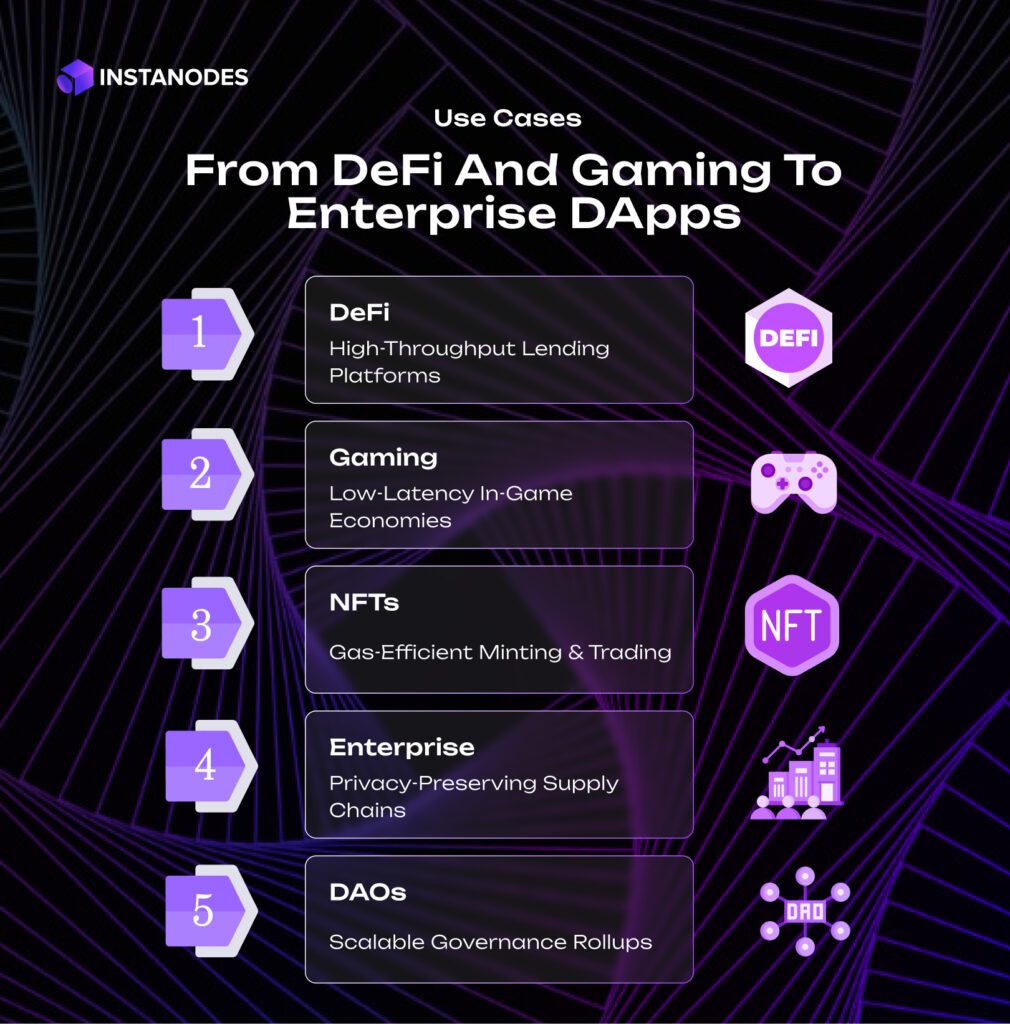
1. DeFi Protocols
Decentralized finance has been limited by the scalability constraints of base layer blockchains. Transaction costs and confirmation times have prevented DeFi from reaching mainstream adoption. RaaS enables DeFi protocols to deploy purpose-built rollup crypto solutions optimized for financial applications, with customized privacy features, specific virtual machines, and governance mechanisms.
For instance, a lending protocol could deploy a customized rollup with privacy-preserving features for loan applications while maintaining transparent collateralization ratios. The ability to tailor rollup solutions to specific DeFi use cases will drive the next wave of financial innovation on blockchain.
2. Gaming and NFT Platforms
Blockchain gaming requires high throughput, low latency, and minimal transaction costs. Custom rollups are ideal for gaming applications, but most gaming studios lack blockchain infrastructure expertise. Rollups as a Service platforms enable game developers to focus on creating engaging experiences while leveraging pre-configured rollup solutions optimized for gaming.
NFT platforms similarly benefit from purpose-built rollups that can handle high-volume minting events and trading activity without the prohibitive gas costs associated with Layer 1 blockchains.
3. Enterprise Applications
Companies venturing into blockchain solutions usually need special privacy, compliance, and performance features. RaaS platforms allow companies to deploy tailored rollup crypto solutions that suit their specific needs without establishing heavy blockchain infrastructure capabilities internally.
For supply chain applications, for example, enterprises might deploy rollups with specific data availability solutions that balance transparency with confidentiality requirements while ensuring regulatory compliance.
4. DAOs and Governance
Decentralized autonomous organizations often struggle with governance under Layer 1 constraints, where voting can be prohibitively expensive. Purpose-built governance rollups can enable more frequent and granular governance actions while maintaining security through the underlying Layer 1.
Conclusion
The parallels between Shopify’s impact on e-commerce and the potential of Rollups as a Service for Web3 are compelling. Just as Shopify brought online retail down to earth through the abstraction away of technical intricacy, RaaS platforms democratizes the use of blockchain scalability solutions. It led to a new era of adoption and innovation within the Web3 realm, such that high-performing decentralized apps are within the reach of developers across all horizons and budget lines.
RaaS makes blockchain development easier, reduces expenses, speeds go-to-market initiatives, and brings the infrastructure to non-experts without compromising on scalability, security, and interoperability.
Rollups are gaining increasing traction over general-purpose blockchains, enabling developers to create richer dApps and users to enjoy faster, cheaper, and more dependable services. If you are looking to launch your own custom rollup crypto solution or build scalable Web3 infrastructure, now is the time to act.
Partner with Instanodes, a trusted expert in building blockchain infrastructure. We help startups, protocols, and enterprises deploy secure, high-performance rollups tailored to their needs. From zk-rollups to full-stack appchains, we offer everything you need to bring your Web3 vision to life. You can deploy, monitor, and scale your rollup solution with 99.9% guaranteed uptime and expert support.
Get in touch with us today and take the fast lane to decentralized innovation!
